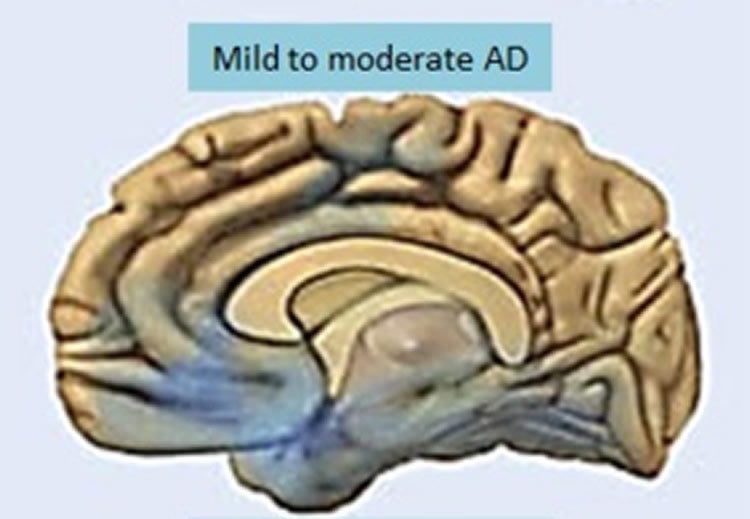How the brain progresses from mild cognitive impairment (MCI) to Alzheimer’s-type dementia has been an enigma for the scientific community. However, a recent study by the team of Dr. Sylvie Belleville, PhD, Director of the Research Centre at the Institut universitaire de gériatrie de Montréal (Montreal Geriatric Institute) and Professor of Psychology at Université de Montréal, has shed light on this progression by showing the typical patterns of the brain’s progression to dementia.
For the study, the team compared changes that occurred over many years in people with stable MCI with changes in people for whom MCI progressed to a diagnosis of Alzheimer’s. Dr. Belleville worked with doctoral student Simon Cloutier and a team of clinician researchers from Montreal. This study was funded by the Canadian Institutes of Health Research (CIHR) and was published in the Journal of Alzheimer’s Disease.
The study showed that different cognitive areas (language, inhibition, visuo-spatial processing, working memory, executive functions, etc.) do not change in a uniform way. Cognitive decline does not occur in a linear fashion; instead, the path to dementia is complex and may sometimes be characterized by periods of stability followed by accelerated decline one or two years before diagnosis.
“We’ve identified a profile of changes that characterizes people who progress towards dementia. In reality, a quick decline in episodic and working memory associated with language problems appears to be the typical profile of people who have a high risk of developing dementia within a short amount of time,” the researcher explained.

Instead of seeing this as bad news, Dr. Belleville views these results as hope for seniors who are worried about their memories. “Many people complain about their memories. However, the presence of a change is what determines the risk of progression. This study has let us characterize the parameters of decline in people who will eventually develop Alzheimer’s, which means we can better identify both benign symptoms and those that warrant particular attention. Rapid memory decline suggests that the onset of symptoms is probably due to a loss of the brain’s compensatory mechanisms.”
Alzheimer’s disease is diagnosed late in its progression and sometimes up to fifteen years after its first effects on the brain. It is important to identify the early indicators so that patients can receive treatment as soon as possible.
Funding: The research was funded by the Canadian Institutes for Health Research.
Source: William Raillant-Clark – University of Montreal
Image Credit: The image is in the public domain
Original Research: Full open access research for “Select this result for bulk action Patterns of Cognitive Decline Prior to Dementia in Persons with Mild Cognitive Impairment” by Cloutier, Simon; Chertkow, Howard; Kergoat, Marie-Jeanne; Gauthier, Serge; and Belleville, Sylvie in Journal of Alzheimer’s Disease. Published online September 17 2015 doi:10.3233/JAD-142910
Abstract
Select this result for bulk action Patterns of Cognitive Decline Prior to Dementia in Persons with Mild Cognitive Impairment
Only a limited number of studies have investigated the decline of discrete cognitive domains as individuals progress from mild cognitive impairment (MCI) to dementia. Thus, the goal of this longitudinal study was to evaluate the cognitive changes underway during the years preceding a diagnosis of probable Alzheimer’s disease (AD), and to compare these changes to those found in MCI participants who do not progress to dementia. Participants were compared as a function of whether they later converted to AD (n = 47) or not (n = 74). Cognitive change was assessed prior to the conversion year, using that year as a starting point. A combination of polynomial regression analyses and mixed ANOVAs assessed 1) the trajectory of cognitive decline for each domain and 2) the differences between non-progressors and those who had converted to AD. The different cognitive domains demonstrated very different patterns of decline in the group of MCI progressors. A quadratic function, i.e., many years of stable performance followed by a rapid decline just prior to diagnosis, was observed for delayed recall, working memory, and spatial memory. In contrast, a gradual linear decline was observed for immediate recall, executive function, and visuo-spatial abilities. Finally, language in progressors was impaired on all time periods relative to non-progressors, but there was no further change between the first assessments and conversion to AD. Individuals with MCI who progress to AD show abnormal cognition at least two years prior to their dementia diagnosis. The pattern of symptom change observed appears to depend upon the cognitive domain and thus, clinical studies should not assume similar rate of decline across domains. In contrast and, apart from verbal memory, the non-progressors present a performance similar to that of healthy older adults.
“Select this result for bulk action Patterns of Cognitive Decline Prior to Dementia in Persons with Mild Cognitive Impairment” by Cloutier, Simon; Chertkow, Howard; Kergoat, Marie-Jeanne; Gauthier, Serge; and Belleville, Sylvie in Journal of Alzheimer’s Disease. Published online September 17 2015 doi:10.3233/JAD-142910






